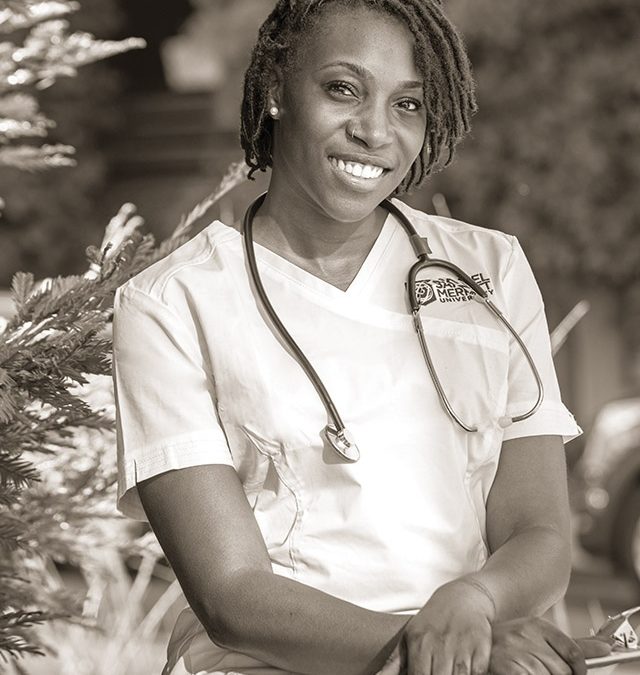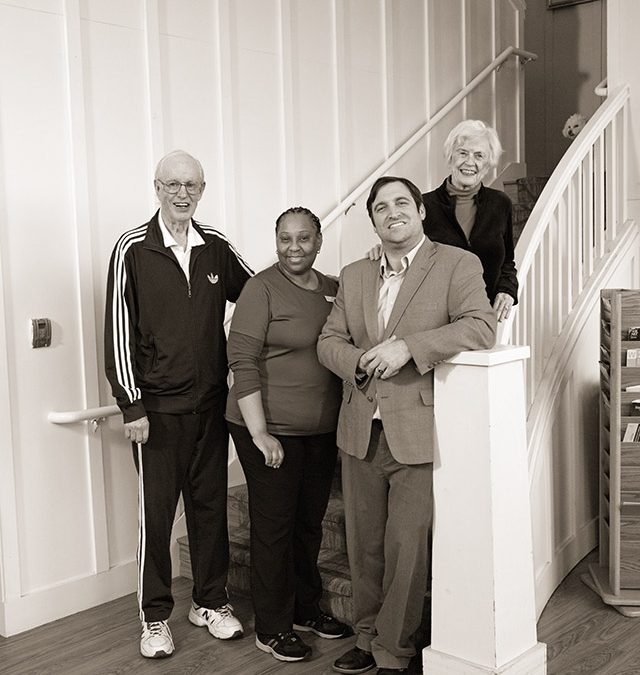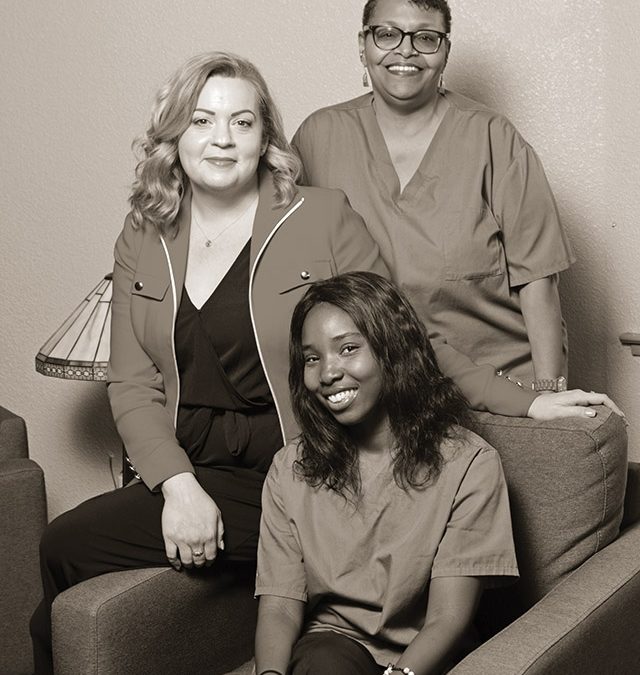Lauren Zimmerman Cook of AEC recommends hiring a “placement specialist.”
Here are some key questions to ask before you do.
The time has come: Mom or Dad (or both) are getting too old to live on their own anymore. And it’s time they move somewhere else. But where? How do you start researching the right facilities? How do you know the care center will be the right fit?
To start figuring out the answers, we decided to ask an expert: Lauren Zimmerman Cook, CEO of AEC Living, which operates two senior living communities in Alameda. “The first question you need to ask is, ‘What’s the reason they’re moving?’” Zimmerman Cook said.
Are they lonely? Are they showing signs of dementia or Alzheimer’s? Do they need to be closer to you?
“What they need will affect what you look for,” Zimmerman Cook said.
Once you’ve established the reason why your parents need to move, then the focused research begins. It’s good to start reading about the various kinds of assisted-care or nursing home centers that might best fit your parents’ needs, Zimmerman Cook said. But the research should get much more personal than that.
And don’t think that online help is a panacea. Zimmerman Cook highly recommends using the services of “placement specialists” who will do the research and then physically take seniors to visit each site. “You want someone who meets your parent and introduces them to the staff,” she said. “These specialists are great if you don’t have time to see every single facility yourself.” Best news? Most placement specialists are free—they earn their commission through each client they refer.
Zimmerman Cook personally recommended three such specialists in the Bay Area: Helen Lindberg of Care Quest and Alan Morgenstern and Drea Ball of Grapevine Senior Services.
“It’s crucial that families work with a local resource,” Lindberg said, whose company works with most of the retirement communities in Alameda and Contra Costa counties. “You need to work with someone who knows all the communities and supportive-living environments in your county. We meet the family, get to know the client and offer our services to tour. We can help families the choose most appropriate place for their loved one.”
Aside from seeing what the facility might offer in terms of services and activities onsite, it’s key to see where the facility is located geographically, Zimmerman Cook said. Is it near commute options, like a bus line or a BART station? Does the facility offer a shuttle? Is it within walking distance to the grocery store?
Merrill Gardens, a new senior living facility in Oakland’s Rockridge district, offers all these options, with the newly constructed The Shops at the Ridge, complete with a Safeway, directly across the street, Zimmerman Cook said.
One of the AEC Living facilities that Zimmerman Cook runs in Alameda—The Lodge—offers assisted-living and hospice care. The other, Elders Inn, is for people with dementia. (AEC Living also helped developed Phoenix Commons, which is an independent, co-housing facility for seniors in Oakland.)
On the Island, the Alameda shuttle runs weekly stops that take AEC’s residents from both facilities to the Alameda Mastick Senior Center, where the city’s recreation and parks department offers trips, gambling, and other fun senior activities. Her staff will also will drive residents there.
“It’s better not to live in the suburbs or a house if you can’t get around,” Zimmerman Cook said. “Look for urban walkable places.”
Not only is city life easier for aging parents to make friends and not be isolated, but it’s also a win-win for family visits. Relatives can spend time with Mom and get the grocery shopping done at the same time. “That’s really helpful for everyone,” Zimmerman Cook said.
Once the family has established a list of facilities to visit, the next step is to get a physician’s report: That paperwork will be the facility’s treatment guide. “If the doctor says your parents can’t live on their own, then don’t look at those kinds of places,” Zimmerman Cook said. “Every facility should review the report to see if they can accommodate those needs. And that’s the basis for how much it’s going to cost.”
It’s also important, she said, that the parents’ caregivers, namely their adult children, be completely honest about their parents’ capabilities. Does Dad walk well? How is Mom’s memory? If relatives are not truthful about these answers, Zimmerman Cook warned, then the facility can’t accommodate what your parent really needs.
When you bring this information to the facility, see how attentive the staff is to what you say about your parents and how much they pore over the physician’s report. It’s a red flag, she said, if they don’t look at it or seem to dismiss what the doctor recommends.
Finally, she said, your life as the adult child has to be taken into account, too. If your parents live across the country, you might just have to move them to California so they can be near you. “You can’t fly down there every month and a half,” she said. “Flying and trying to keep a job is impossible. If you can’t move because you have a career, you have to be realistic.”
She said she knows one family who moves their mother every three years to share the responsibilities among the siblings. Despite what that might sound like, Zimmerman Cook said, the mother was fine with it. “To her, it was a chance to spend time with all her children,” she said. “It might sound like a negative but it was a positive way that the family decided to handle the situation.”
















